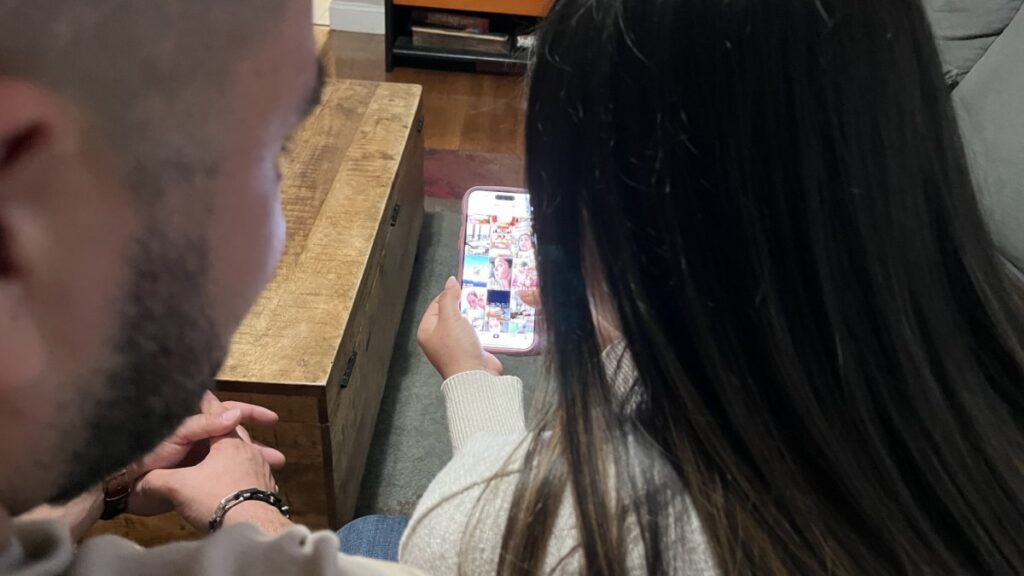The last several days have been a whirlwind for people in the U.S. who use TikTok and who rely on it for their livelihoods.
Saturday, U.S.TikTok users found they were unable to access the social media app, when they logged on they saw a message saying “a law banning TikTok has been enacted.” While users were well aware this ban was coming, some users were surprised to see the app unavailable on Saturday as Sunday was when the app was scheduled to be banned under U.S. law.
Sunday, many TikTok users woke up without access to the app, only to find it restored hours later. In a statement, TikTok said its app was coming back online in the U.S. after President-elect Donald Trump provided the necessary assurances to the company’s service providers “that they will face no penalties” for providing access to the app. TikTok says 170 million Americans use its platform along with more than 7 million businesses.
President-elect Trump said he would issue an executive order Monday to “extend the period of time before the law’s prohibitions take effect.” Under the law that President Joe Biden signed in April, TikTok would be banned unless its Chinese owner, ByteDance, sold the company to a non-Chinese buyer.
Content creators who use TikTok tell NBC Bay Area they’ve been left trying to figure out how to move forward.

San Ramon residents Mayra and Aaron Spiteri had been planning for months, expecting to lose access to the app altogether after January 19. The husband and wife team are known on social media as “The Mars Family” where they make videos about their adventures together, often including Mayra’s mother. Mayra started their TikTok account as something to pass the time during the pandemic, initially making videos about Aaron’s attempts to learn Spanish — her first language.
But over the years, TikTok turned into a significant source of income for the family, bringing in leads for Aaron’s business as an electrician and allowing Mayra to sell things through their TikTok shop. Aaron explained that after his wife posted a video introducing his company, he began getting outreach from chain stores saying, “‘I usually wouldn’t try somebody so new, but we feel like through your videos and with your family we know you and we trust you.'”
Aaron and Mayra had been preparing for the app to disappear when the ban went into effect, they made goodbye videos on TikTok and tried to direct their followers to keep up with them on other platforms. They were stunned to see the app go dark on Saturday, then filled with joy to see it restored on Sunday.
But Aaron said he feels uneasy about the direction of the app where he and his wife have spent around five years building a community.
“I would like to know, I would like for them to say either ‘Yes, it’s staying or no it’s going’ and that way we know, I don’t like this kind of in-limbo position we’ve been in for months,” Aaron explained.
Aaron said he doesn’t consider himself a very political person, but he believes losing this app would impact his family business and the businesses of many others around the country.
“Not only if the platform goes away but if the platform changes to somebody else buying it and they change the algorithms and the structure of the apps and the posting and maybe they want a different type of advertising, it’s gonna affect a lot of small [businesses],” Aaron said.
“And I think in politics and in life a lot of these bigger companies forget about that,” he continued.

Paulina Hong, owner of the Oakland-based small business Menmin Made, is also worried about how TikTok’s uncertain future will impact her work making Asian-American-inspired apparel and home goods.
Hong, who makes art that draws on her experiences as a Chinese American and as a daughter of restaurant owners, said about 20% of her revenue currently comes from sales out of her TikTok Shop. She noted that TikTok has helped her sell products to and connect with people all over the world.
“I feel like I have developed into just a more worldly person through TikTok, I’ve learned so much about other cultures, I’ve learned so much about myself,” Paulina said.
She explained it felt surreal to her on Saturday to see the app actually become unavailable.
“I spent every day on this app since 2020 and it was suddenly gone,” she noted.
“I was grieving the ban’s impact on my personal life, but also on my business and I was feeling really anxious about the future that is ahead for my business because of the TikTok ban,” Paulina said.
Sunday when she saw the app had been restored, Paulina recalled feeling confused and relieved. She is nervous that the app could ultimately become unavailable again once the 90 days is over and she would have to once again adjust to the reality of not having that platform.
Paulina said she also feels a bit nervous to see how many social media executives are growing close to the Trump administration.
“I am concerned about how this will affect how Americans are allowed to express themselves online,” she noted.
Even if TikTok is given an extension, the law still forces ByteDance to eventually sell it to a non-Chinese owner.
TikTok said in its statement on Sunday it will “work with President Trump on a long-term solution that keeps TikTok in the United States.”
This article was originally published by a www.nbcbayarea.com . Read the Original article here. .

